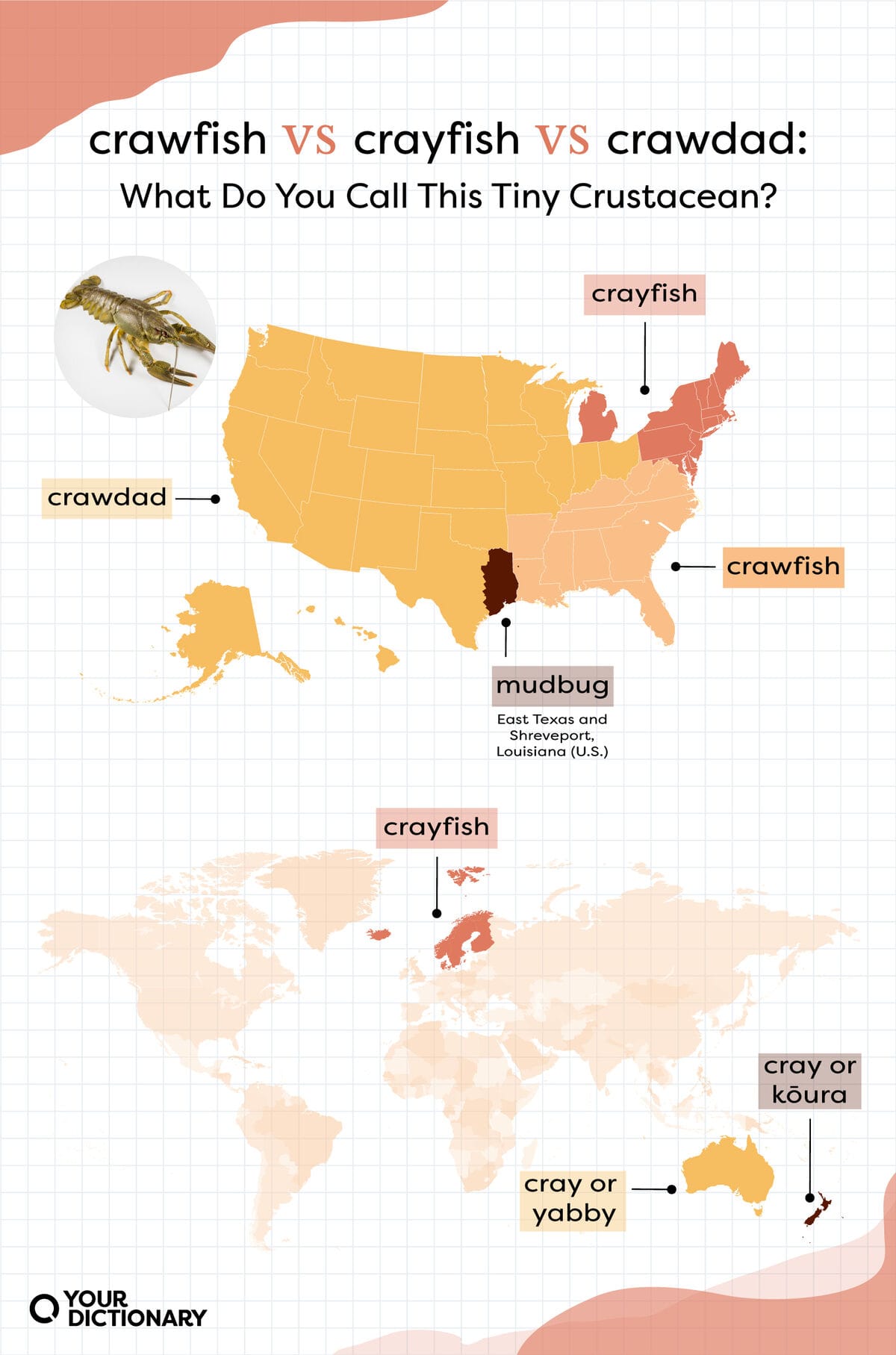Decoding the Delicious Mystery of Crawdad Names
Have you ever found yourself wondering, “Are crawdads, crayfish, and crawfish the same thing?” You’re not alone! These crustaceans, beloved in kitchens and ecosystems alike, seem to have a bit of an identity crisis. But rest assured, the answer is simpler than you might think.
Here’s the catch: they’re all the same creature! We’re talking about the same ten-legged, freshwater dweller known for its delicate flavor and pincer-wielding skills. The names are simply regional variations, like saying “soda” versus “pop”—it’s all about where you’re from.
Regional Flavors: Crayfish by Any Other Name
While scientists officially recognize them as crayfish, each name offers a glimpse into the cultural geography of these crustaceans:
- Crawfish: This term reigns supreme in the Southern United States, particularly in Louisiana, where crawfish boils are practically a religion.
- Crayfish: You’re more likely to hear this name up North and in more formal or scientific contexts. It suggests a touch of sophistication, perhaps hinting at their presence in academic studies.
- Crawdad: This more casual and affectionate term finds its home in the South and Inland South, suggesting a familiarity with these critters that goes beyond the dinner plate.
But why the different names? Linguists believe these variations evolved over time, influenced by early settlers, regional dialects, and the blending of cultures.
More Than Just a Name: Crawfish Culture and Beyond
In Louisiana, the term “crawfish” transcends mere vocabulary. It embodies a rich culinary heritage, celebrated in festivals, family gatherings, and countless recipes. Here, “crawfish” represents a sense of place and shared identity.
Beyond their culinary fame, these freshwater crustaceans are ecological powerhouses! They help keep waterways clean, provide a crucial food source for other animals, and even contribute to scientific research.
Is a Crawdad Just a Mini Lobster?
At first glance, a crawdad might resemble a tiny lobster, but don’t let appearances fool you! While they share some family resemblance as crustaceans, key differences set them apart.
Habitat: This is the most significant distinction. Crawdads are freshwater enthusiasts, found in rivers, lakes, and even ditches. Lobsters, on the other hand, are creatures of the sea, residing in saltwater environments.
Size: Lobsters take the crown in the size category, with some species reaching over three feet long. Crawdads, in comparison, are downright petite, rarely exceeding six inches.
Claws: While both sport pincers, lobster claws are significantly larger and more powerful, designed for cracking open shellfish. Crawdad claws are better suited for grabbing smaller prey.
Flavor: Despite their diminutive size, crawdads boast a unique, slightly sweet flavor that’s made them a culinary star. While lobsters have a more robust taste, crawdads hold their own in dishes like gumbo and étouffée.
Why Are They Called Crawdads?
The name “crawdad” is about as straightforward as it gets! These little crustaceans earned their moniker from their manner of movement—they crawl about!
It’s a testament to the power of observation and how we often name things based on their most prominent characteristics.
Unveiling the Fascinating World of Crawdads
Now that you’re in the know about the crawdad/crayfish/crawfish conundrum, why not dive deeper into their intriguing world? Explore their ecological importance, discover the cultural traditions surrounding them, or even try your hand at a crawfish boil. These amazing creatures offer a glimpse into the diversity of language, the wonders of nature, and the delicious possibilities of a good meal.
- Unlocking Francis Alexander Shields’ Finance Empire: A Comprehensive Biography - July 12, 2025
- Unveiling Francis Alexander Shields: A Business Legacy - July 12, 2025
- Francis Alexander Shields’ Business Career: A Comprehensive Overview - July 12, 2025
















1 thought on “Crawdad vs. Crayfish: What’s the Difference (and Does It Really Matter)?”
Comments are closed.